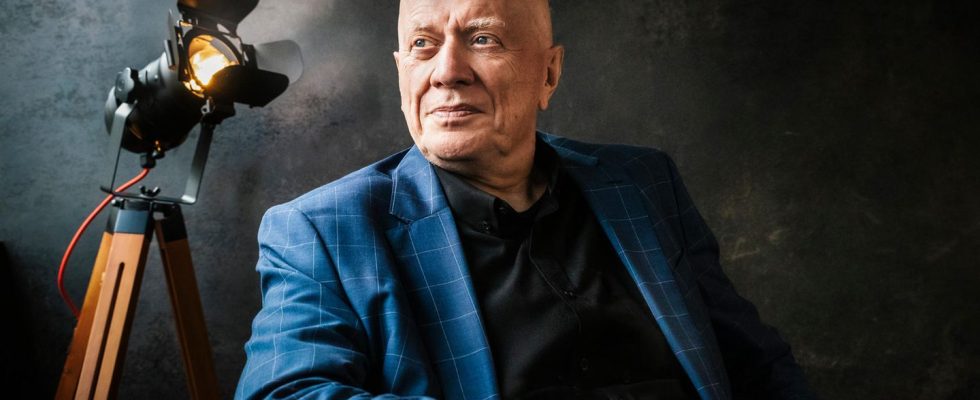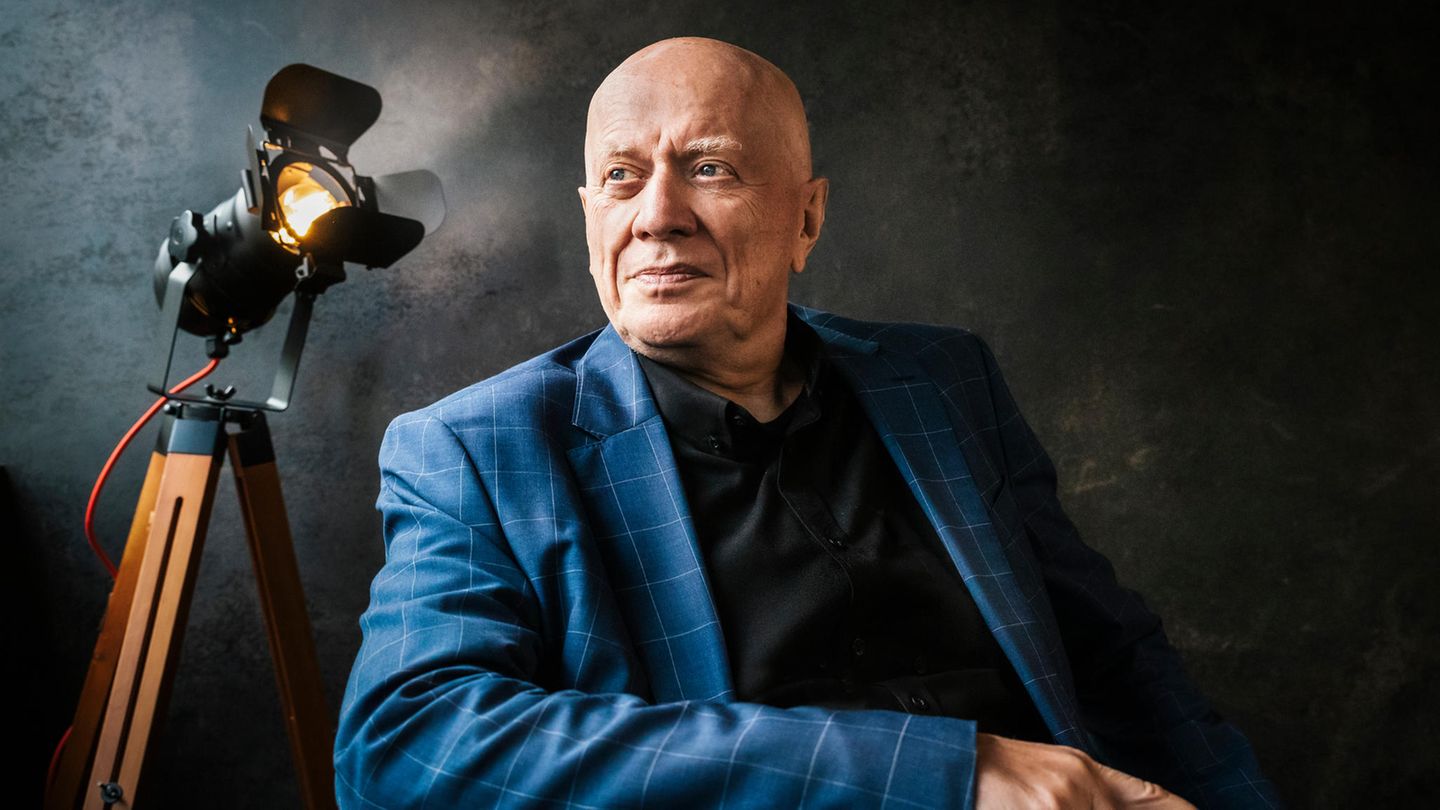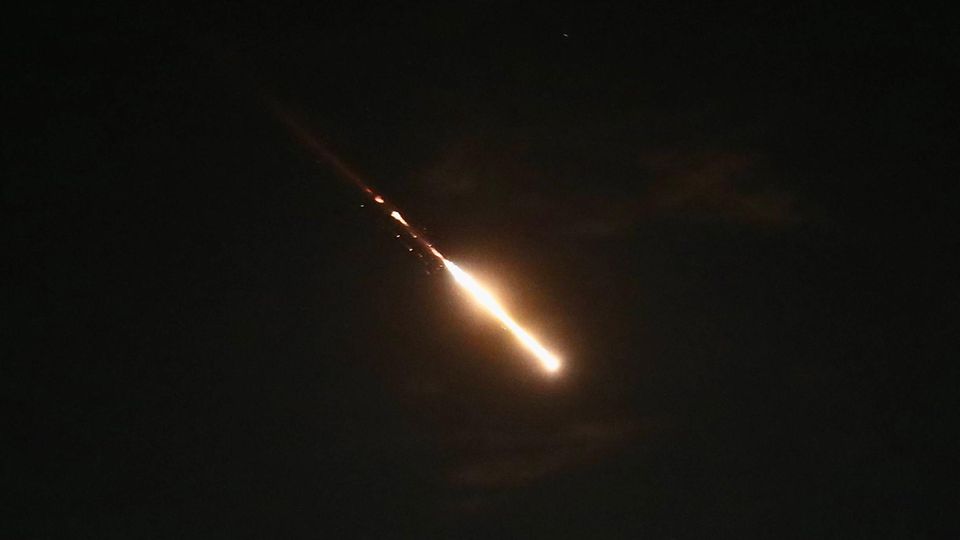Israel, Yemen or Ukraine – the Moscow-Tehran axis plays a crucial role in all wars. The Green thinker warns: All appeals to Iran ultimately help as much as those to Putin – nothing.
The Iranian drone attack on Israel could also be averted thanks to international support. Is Israel not as isolated as it recently seemed?
The good news is that despite all the criticism of the Netanyahu government’s policies and Israel’s conduct of the war in Gaza, the West’s solidarity stands when it counts. Germany declared Israel’s security to be a reason of state, but the USA, France and Great Britain acted. Saudi Arabia and Jordan also acted. The fact that these Arab states value the threat from Iran more highly than the differences they have with Israel is an extremely important political statement.
How new is this?
In recent years, some states in the region have readjusted their relations with Israel. New alliance constellations have emerged with the Gulf states and the countries of the Maghreb region. It was always clear that Saudi Arabia was involved in this rapprochement behind the scenes. Now it’s official.
Has he Iran did himself a disservice with his attack?
In two respects. On the one hand, Israel has shown itself to be able to fend off drone and missile attacks of this magnitude. On the other hand, Iran provoked Saudi Arabia to come out. The fact that the Saudis are demonstratively siding with Israel and against Iran shows very clearly that the conflict with Iran is the new defining conflict in the entire Middle East region.
So far, Israel appears to be refraining from a military response. Will the feared escalation still happen?
That hasn’t been decided yet. It depends a lot on how the West reacts to the Iranian attack. Are there serious new economic sanctions? Are there diplomatic initiatives to isolate Iran? Are there obligations to provide assistance in the event of another attack? The answer to these questions depends on whether Israel will respond militarily.
What might such an answer look like?
It could be an attack on Iranian drone production or a strike against missile bases. Israel is in a dilemma. Iran is close to possessing the atomic bomb. This would make him unassailable. Tehran could then attack Israel through its proxies – from Hezbollah to Islamic Jihad to the regime in Syria – but would itself be largely protected from retaliation. If you don’t want Israel to avert this danger militarily, it needs security guarantees.
Reason of state also means intervening militarily in case of doubt?
Why doesn’t NATO offer Israel membership as part of a political solution to the Middle East conflict?
Because no one in Israeli politics is aiming for a two-state solution at the moment?
The prospect of Israel joining NATO would be an incentive to promote a political solution to the conflict. It would also include the moderate Arab states.
If we look at the current situation: according to the Israeli Air Force, 99 percent of all drones and missiles could be repelled. What do you conclude from this?
Iran has much greater potential. In the event of a final showdown, even Israel’s air defense would be overwhelmed. The positive news, however, is how effective modern air defense can be in conjunction with partner air forces. For me it was also a reminder of the situation in Ukraine.
In what way?
Ukraine is exposed to Russian missile and drone attacks almost daily – and a large proportion of these drones are Iranian-made or have an Iranian patent. Why do we hesitate to give Ukraine the opportunity to defend itself better? Why don’t we defend Ukraine as resolutely as we defend Israel? We are dealing with wars in the Middle East and Europe that are obviously linked: in both, the Moscow-Tehran axis plays a central role.
In fact, Ukrainian President Zelensky is once again calling for more air support. The whole world saw in Israel what was possible.
Close the sky – that was a central demand of Ukraine right from the start of the war. The USA and its European partners have always rejected this because they feared the risk of direct participation in the war. But this is not the case under international law. Participation in the defense of Iranian drones has not made the USA, France or Great Britain a belligerent against Iran. This was aiding and abetting Israel’s self-defense. It would be the same in Ukraine.
Politically it would still remain risky.
If you consider the political risk to be too high, then you must at least equip Ukraine with the necessary air defense so that it can protect itself. You cannot expect Ukraine not to attack targets in Russia while at the same time accepting that dozens of rockets, cruise missiles and drones attack Ukrainian cities every day.
But doesn’t what you said about Iran apply even more to Russia: As a nuclear power you are invulnerable? Doesn’t that limit the resources and options?
This is not about NATO attacking targets in Russia. It’s about helping Ukraine repel Russian attacks. This also includes guided missiles with which Ukraine can attack airports and bases from which it itself is attacked. You cannot win a war by limiting yourself to mere defense.
And how should Europe and the West behave towards Iran?
The first thing would be to finally tie the threads together, i.e. the conflict around Israel, the war in Yemen and Syria, and the war in Ukraine. These locations are all intertwined. These are not isolated conflicts. Everywhere, it is Iran that arms, trains and advises its allies to the teeth. We must stop viewing Iran as a difficult partner. We must treat him as a strategic adversary.
What does that mean specifically?
A strict economic embargo, tough sanctions against the Revolutionary Guards, a strategic alliance of democracies. We finally need a coherent political, economic and military strategy towards Tehran. The height of helplessness was our Chancellor’s appeal that the “conflict parties” should please take the path of de-escalation. This will help in Iran’s case as much as it did with Putin: nothing.



